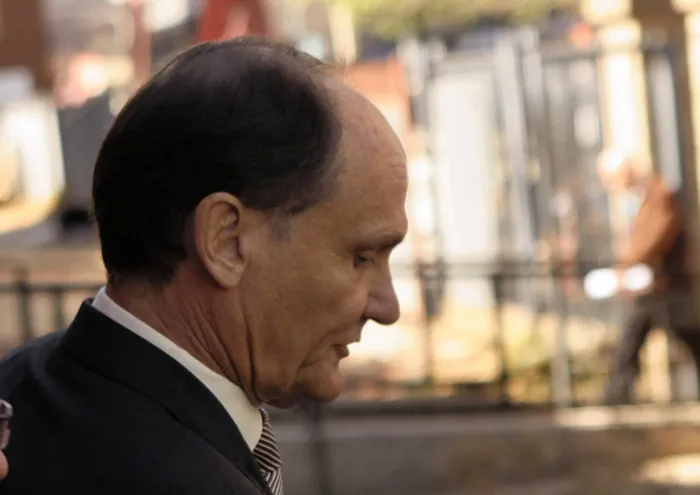Knott-Craig: I did deals with no approval

Former Vodacom CEO Alan Knott-Craig leaves the South Gauteng High Court after appearing on Monday. Picture: Timothy Bernard 07.08.2013 Former Vodacom CEO Alan Knott-Craig leaves the South Gauteng High Court after appearing on Monday. Picture: Timothy Bernard 07.08.2013
Johannesburg - Alan Knott-Craig’s biography, Second is Nothing, about how he founded Vodacom, again proved to be his Achilles heel as he took the stand for a second consecutive day yesterday.
Cedric Puckrin, counsel for the plaintiff, Nkosana Makate, who instituted legal proceedings against Vodacom seeking compensation for his Please Call Me idea, read from paragraphs in the book, citing how Knott-Craig concluded large transactions without shareholder approval.
A business partner that supplies base stations was quoted as saying: “We did hundreds of millions of rands of business on a handshake. That’s how we always did business.”
Knott-Craig confirmed that in some cases this was how he had conducted business, but this was within his delegation of authority.
Former human settlements minister Tokyo Sexwale had also asked Knott-Craig for R1.6 million to invest in the Soweto Stadium.
In the book, Knott-Craig revealed that he did not consult shareholders on this, but also said: “It was a lot of money for Vodacom in those days.”
Puckrin was addressing one of Vodacom’s arguments throughout the case that senior officials adhered to strict delegation of authority.
It is this delegation of authority that would have also prevented Philip Geissler, the former executive for product development, from making an agreement with Makate to compensate him above his remuneration and to enter into an unprecedented revenue sharing agreement with the firm for his idea. Revenue sharing was a concept “foreign” to the company, Knott-Craig testified.
In the years since Makate initiated legal proceedings in 2008 to obtain compensation, Vodacom has maintained that the concept was developed within the course and scope of his employment, that his idea belonged to the company and that he could not receive payment over and above his normal remuneration.
Makate’s legal team challenged this notion at the start of the case by confirming that he was employed in the finance division and not to develop ideas.
Makate testified last week that as an employee in finance, he was aware of long-term revenue sharing that took place between Vodacom and service providers.
But Knott-Craig dismissed this idea, saying they were not revenue sharing agreements but contracts with people outside the company who would provided an ongoing service to Vodacom, at a more cost-efficient level.
Judge Phillip Coppin asked whether the Vodacom budget ever anticipated which ideas would be received.
“If an idea comes in we can’t just say it’s outside of the budget?” he asked. Knott-Craig responded: “No”.
Vodacom has previously contended that budgetary constraints prevented remuneration of Makate for his idea.
The court adjourned at lunchtime to allow documents to be brought before the judge today. A date will also be set for closing arguments. - Business Report